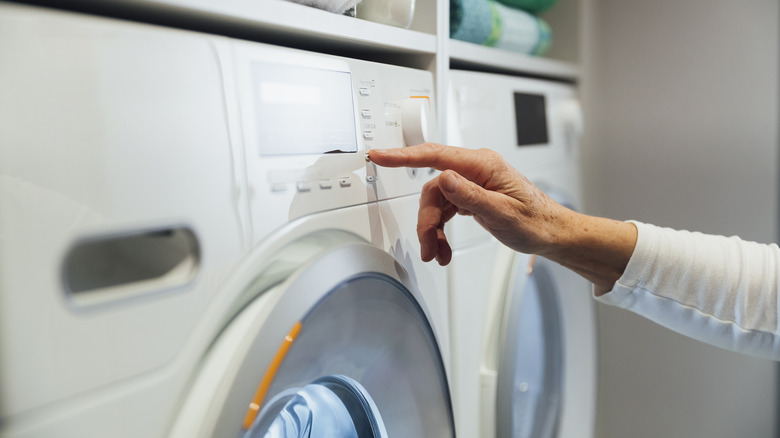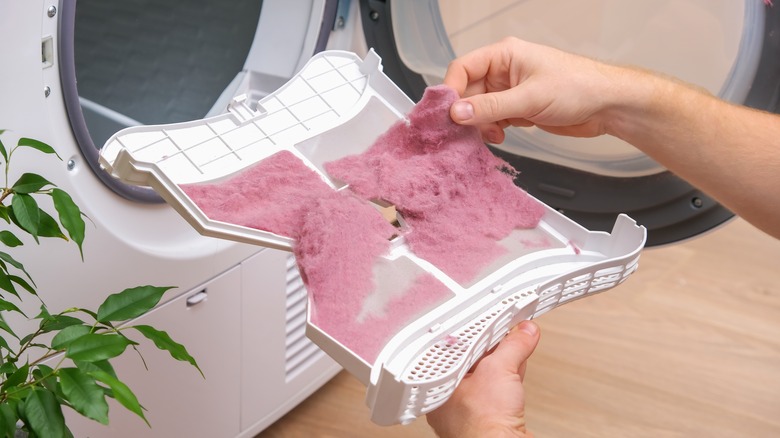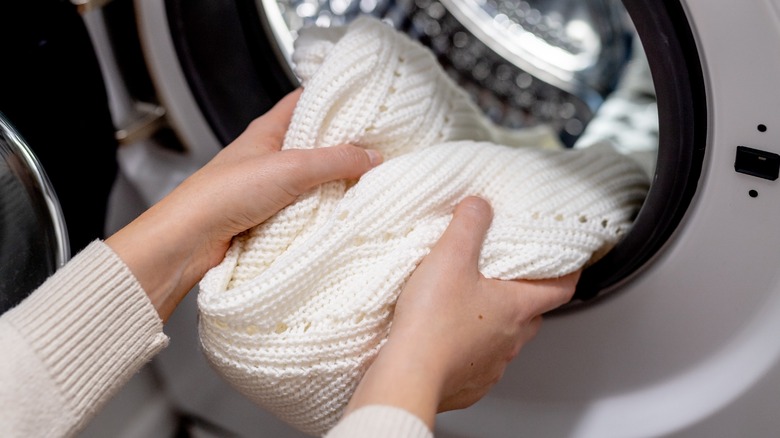Read This Before Buying A Ventless Dryer
While many people in the world still air dry their clothes, the rest use dryers. However, not all of us who want dryers can get one, and usually, that can be tied back to venting issues. Fortunately, there is another alternative to dryers with vents: dryers without them. Before splurging on one, however, you have to consider all the yeas and the nays.
Conventional dryers work through electricity or gas, which heats the air inside the rotating tumbler and circulates it until the clothes are dry. The damp, hot air then passes through a vent that leads it out of the house. As unfair as it may be, not everyone has the luxury of being able to construct a hole in their wall. Your landlord might not allow it, or maybe it isn't feasible for another reason. This is where ventless dryers have the advantage because you won't need to bust any holes in the wall for them to work. Ventless dryers work by circumventing hot air and condensing it into water until it's time to get rid of it in alternative ways — either by collecting it in a container or through a drain. To know if this machine suits your lifestyle, you need to know the pros and cons of using one.
Benefits of ventless dryers
The most obvious benefit of using a ventless dryer is that you don't need vents. You don't have to worry about punching a hole in the wall that a vent will pass through, and you don't have to sacrifice your security deposit. You'll no longer have the chore of cleaning out the dryer vent of heaps of lint after every use, but rather about once a month. Depending on the model, some ventless dryers can be emptied of condensed water a few times a year, so it's an incredibly low-maintenance option. Installing ventless dryers is also easier than vented ones.
Ventless dryers are incredibly energy efficient, unlike the vented ones. Dryers with vents suck up air from the home and expel it after use. This requires continuous air heating without reusing it, which, if you live in a cold region, puts stress on your HVAC system to maintain the regulated air in your house. That's a lot of energy wasted. Ventless dryers reuse the hot air either by recycling it throughout the load or by cooling it via condensation and then reheating.
One last thing to rejoice about is that ventless dryers are gentler on your clothes. Some ventless dryers use cooler air to tumble-dry your sensitive fabrics, which keeps them from shrinking and damaging their texture. While these are all great points, you must consider the flip side of ventless dryers to know if they belong in your household.
Things to consider before getting a ventless dryer
Surprisingly, there are several reasons why ventless dryers wouldn't be up your alley. One of those reasons is that they probably won't service a large household well. If you have tons of laundry to do at once, you might want to go with a vented dryer because the ventless versions tend to have a small capacity. Ventless dryers are also poorly equipped to handle potential fire hazards, particularly in full use. So, it may be low maintenance, but you'll have to keep an eye on it.
Ventless dryers are much slower than conventional dryers because they're so small and sometimes use cooler air. They may also fail to dry your clothes to perfection every single time. This isn't a great option if you have bustling kids who play sports and get their clothes dirty often.
Ventless dryers rank highly in terms of maintenance, but you'll still have to be careful about the state of your laundry room. Because there are no vents to convey hot air out, it gets released back into the room the machine is in. All that hot, humid air can affect the relative humidity in your home. This makes you susceptible to seeing moldy growth on your walls and also possible damage to your building's integrity.


